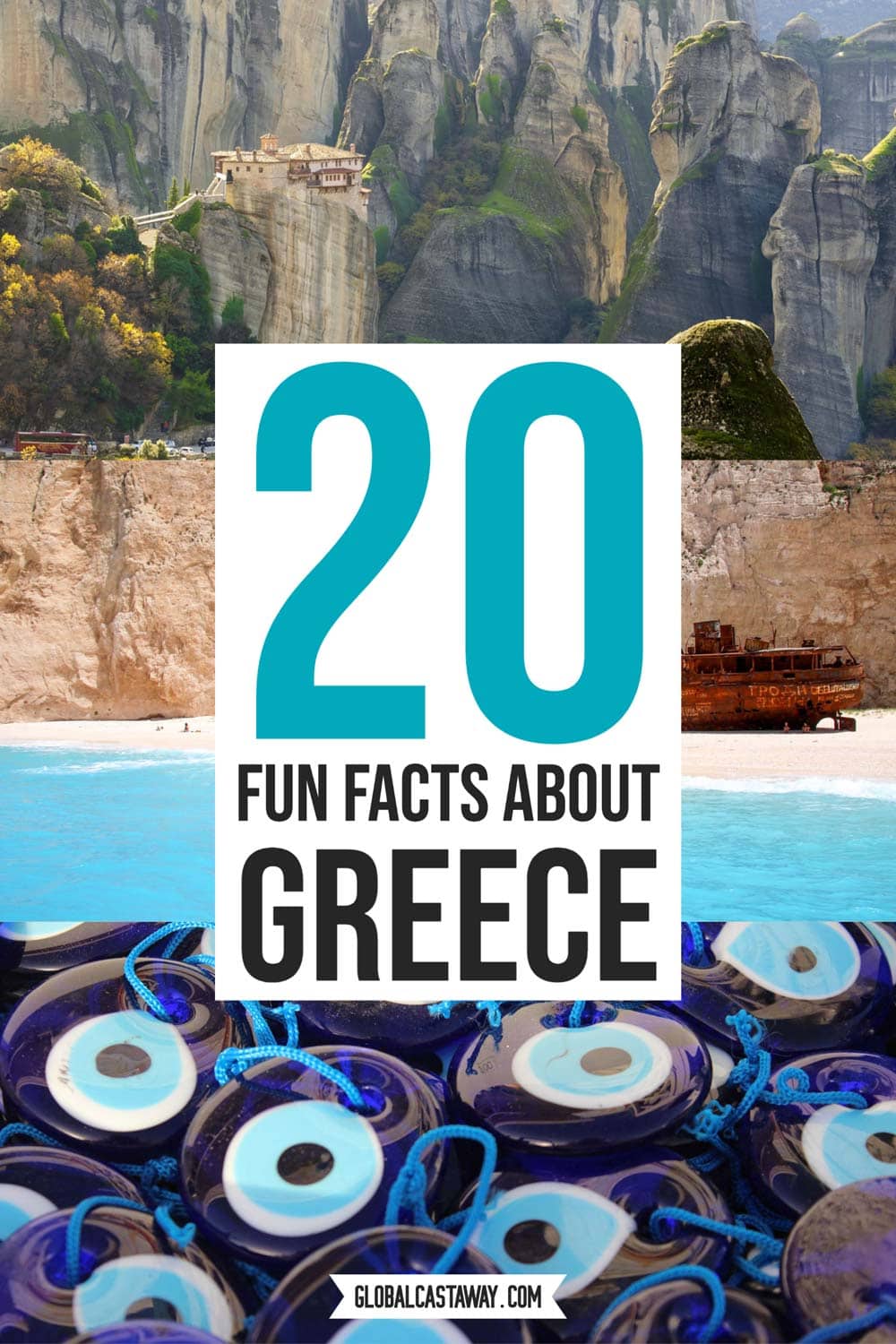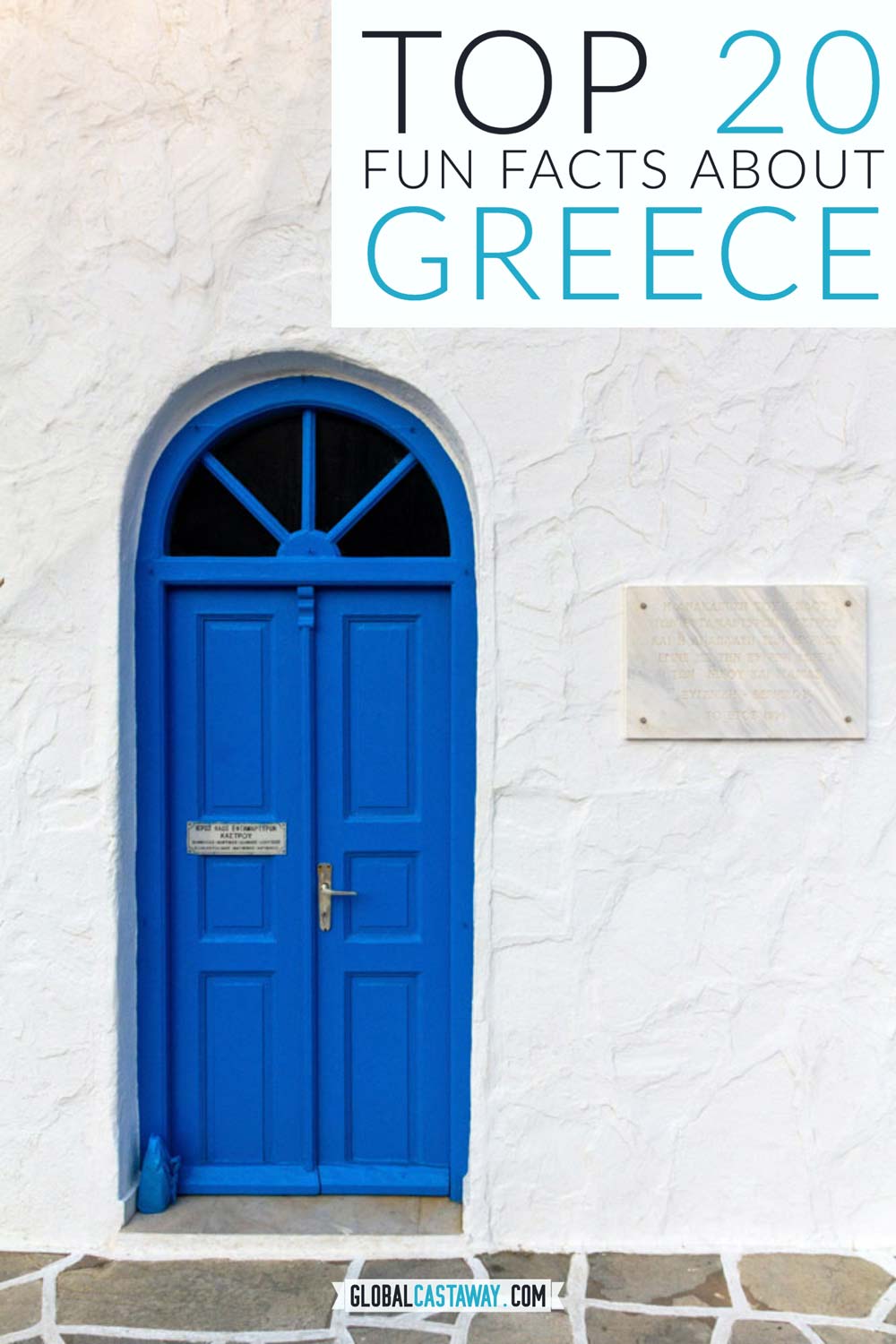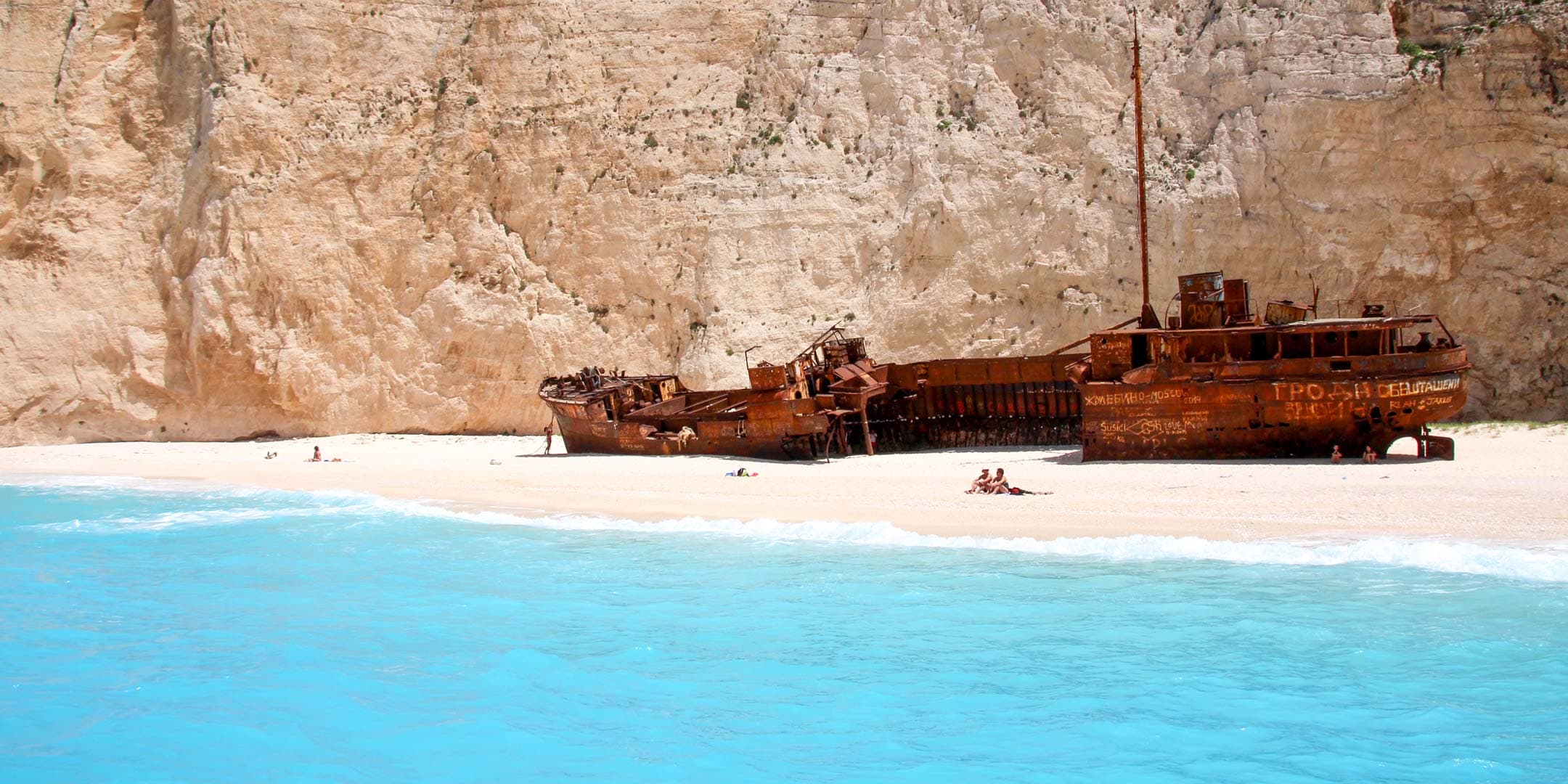Learning fun facts about Greece is a wonderful way to ignite some wanderlust and get excited about your summer travels. It’s also a great conversation-starter. Just imagine the situation: you and your SO (significant other) are sunbathing on a fabulous greek beach, but you have nothing to tell each other anymore. Sharing the fact that Greece is the 3rd largest olive oil producer in the world is a great way to break the silence.
*crickets*
Ok, maybe not, but I promise my next 20 Greek facts are way more interesting, and there are more no olive oil ones.
From the invention of the most popular Italian food to the first Olympic Games, prepare to be submerged into a Mediterranean paradise because these are the 20 most interesting facts about Greece!
The most beachy country in Europe
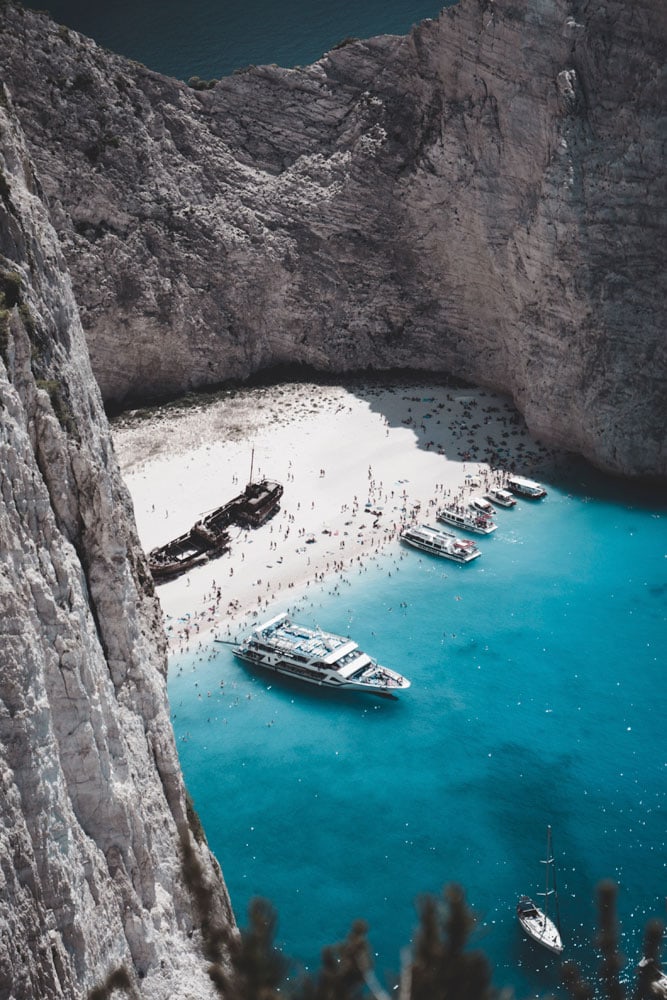
We start with something simple that won’t surprise anyone – Greece is nation number one in Europe for coastline and beaches (Norway and Greenland have longer coastlines, but it’s just rocks and ice there, so they don’t count).
The Greek shoreline equals 16,000 km (9941 mi), and no point in the country is more than 137 km (85 mi) away from water. It’s hardly surprising considering the fact that Greece consists of nearly 6,000 islands and islets (227 inhabited) scattered in the Aegean and Ionian Seas.
If you’ve ever wondered Greece, Italy, Spain, or Portugal is the ultimate beach European destination, wonder no more. No one on the Old Continent is even close to having as many serene shores as the Greeks.
Beach or mountain?
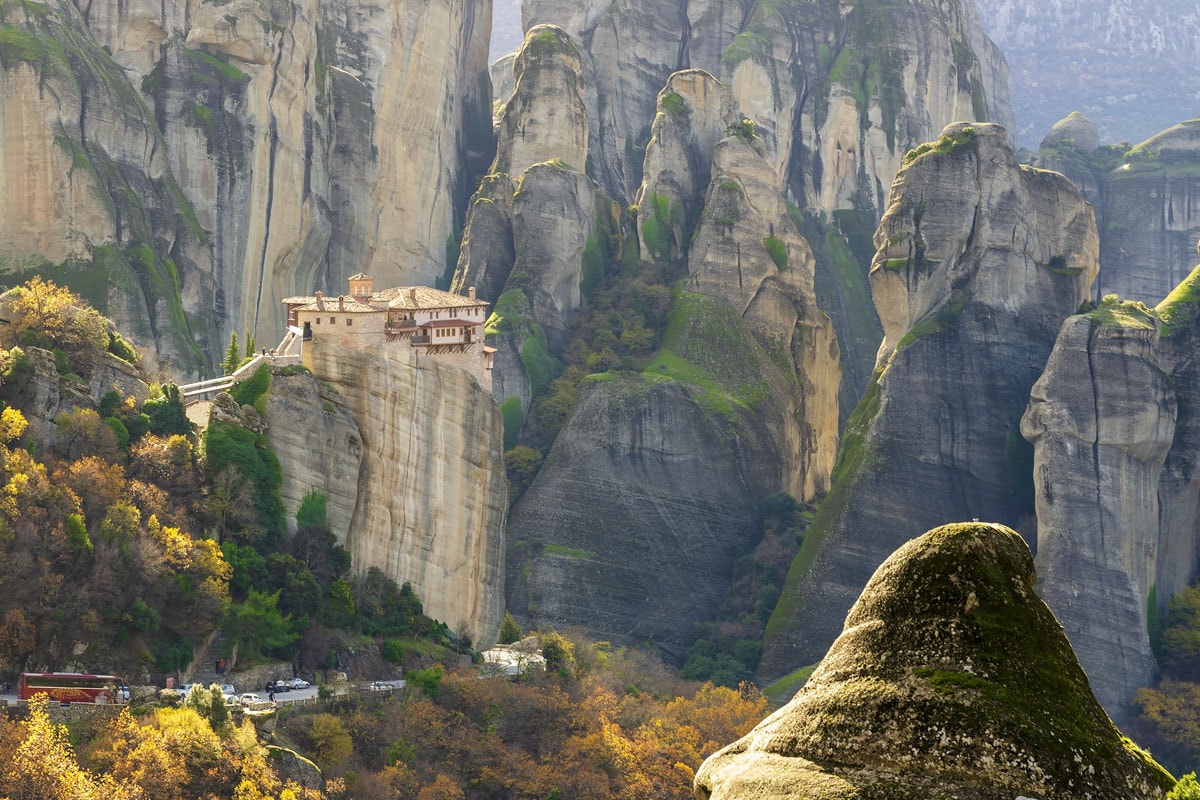
Another fun fact about Greece is that the age-old vacation question – beach or mountain, does not apply there. Why? Because they have plenty of both! In addition to the 6,000 islands and 16,000 km (9941 mi) shoreline, the country is almost entirely covered with mountain ranges.
You didn’t expect that, did you? Neither did I. But it turned out as much as 80% of Greece is mountains! The tallest mountains in Greece are Mounts Smolikas (2637m), Kaimaktsalan (2524m), Gramos (2520m), Giona (2510m), Parnassus (2457m), Psiloritis (2456m), White Mountains (2452), Taygetos (2404m) and, of course, the mythical Mount Olympus (2,917 m).
Ancient Greeks invented pizza

That’s one of the least known Greek facts but also one of the most interesting ones. We all know that pizza is an Italian dish. I mean, it’s the symbol for Italian food all around the world, right?
It turned out, just like many other things, Italians took the idea for pizza from the ancient Greeks. Many hundreds of years ago, the witty Greeks liked to bake large flat unleavened bread and top it with olive oil, herbs, spices, and dates. Yes, there was no tomato sauce or mozzarella, but it’s still a weird version of pizza.
As much as I love Italy and everything Italian, I have to give my admiration to Greece. Italians certainly perfected the pizza, but the Greeks were the ones who made it first.
See Also: 20 Fun Facts About Spain
Multicolored beaches
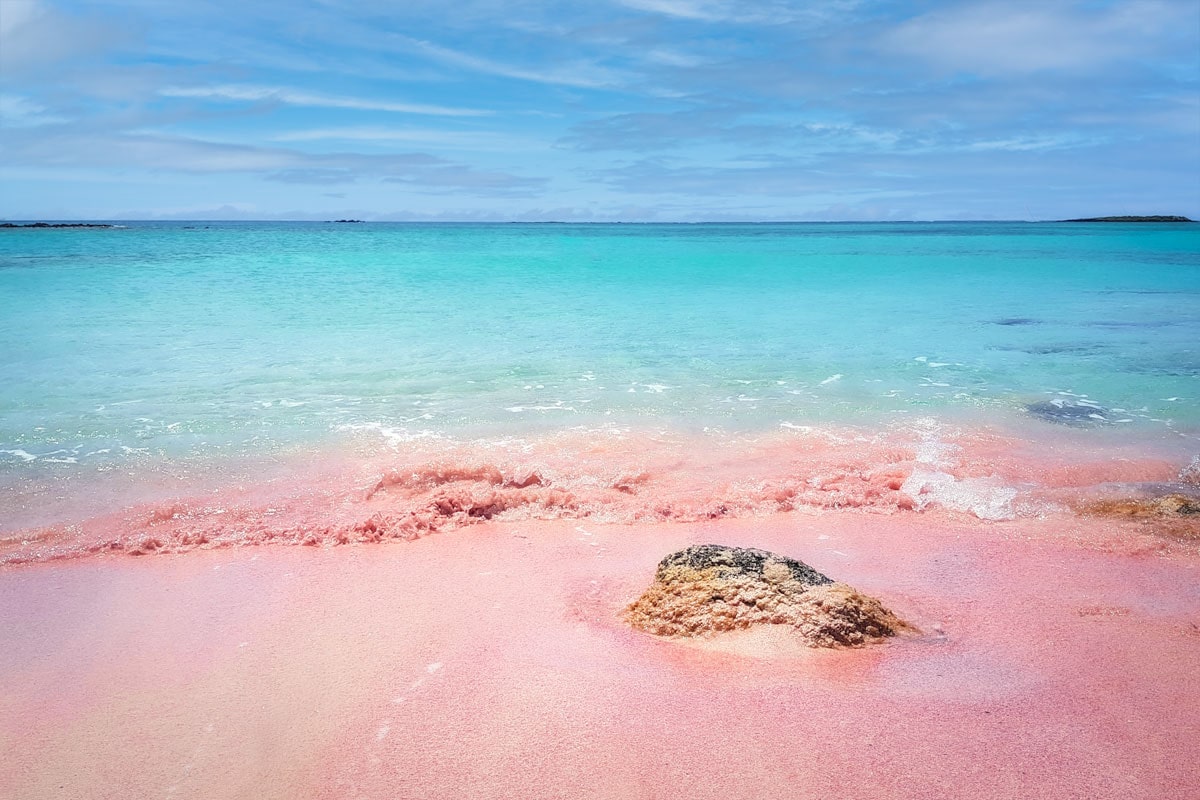
My next Greek fact takes us away from the food and back to the countless beaches and, more specifically, their colors. Greece is one of the few countries on the globe that can brag about having multicolored beaches. And when I’m talking multicolored, I don’t mean just white and gold.
In addition to the regular white and golden seashores in Greece, you also have red, pink, and even black ones! The red (Kokkini Paralia) and the black (Perissa Black Sand Beach) beaches are found on the enchanting Santorini, while the pink ones (Elafonissi and Balos Lagoon) are on mythical Crete.
Archeological wonder
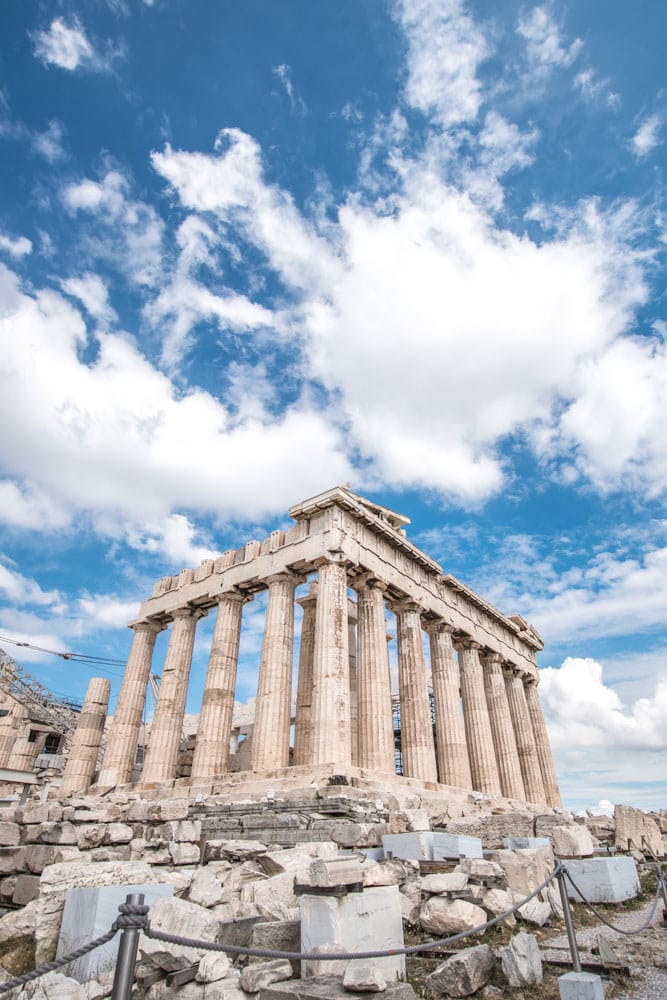
You’re probably suspecting that one already, but let me confirm it, Greece is the most archaeologically rich country in the world.
In addition to the symbol of the Western civilization – the Acropolis, Greece has countless archeological landmarks scattered all around its islands. The UNESCO World Heritage Sites equals 18 (most of them – archeological sites), with 14 more are pending approval.
They also have the highest amount of archaeological museums (more than 110) on the planet! Surprising to no one, Greece is undoubtedly an archeological wonder of a country.
Europe’s oldest capital
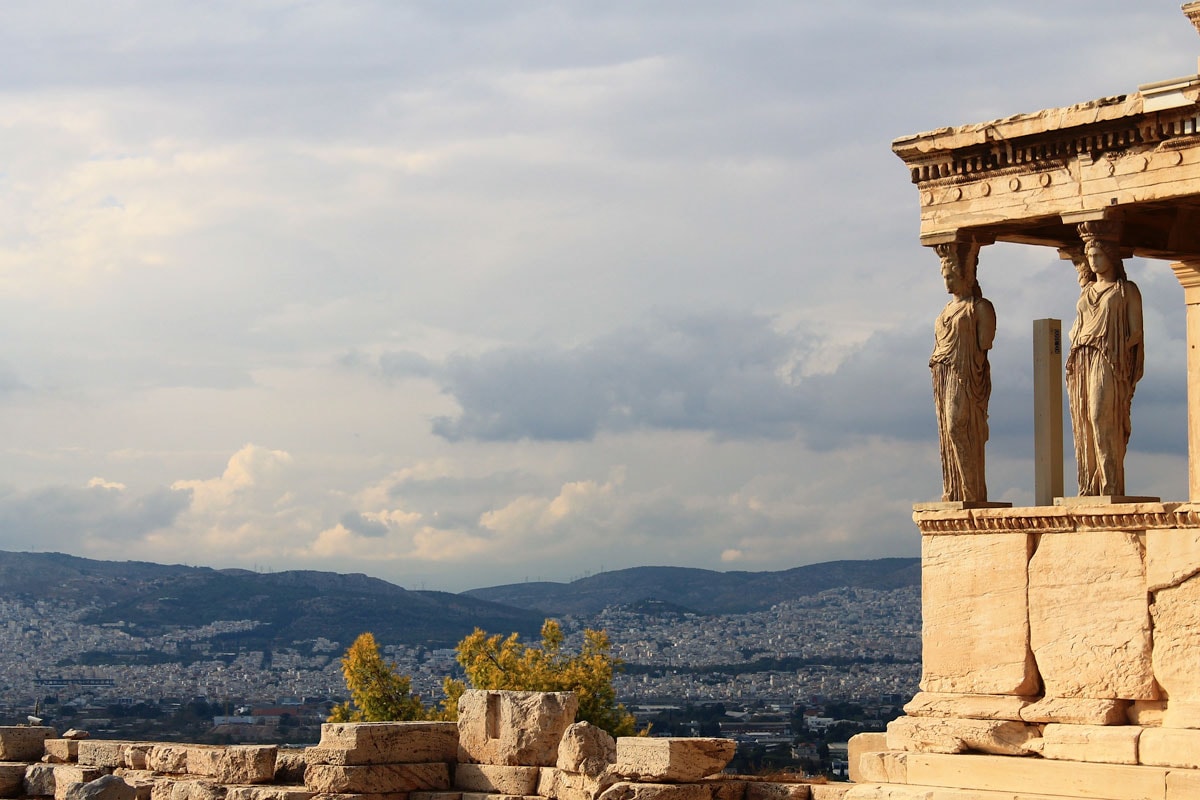
We continue our facts about Greece with a journey to Athens. The country’s capital is one of the oldest cities globally (dating back as far as 3,400 years ago) and also the oldest capital on the continent. It’s home to the amazing Acropolis and plenty of other ancient sites you should definitely check out.
The fun fact here is that Athens could’ve been named Poseidon. That’s according to its origin legend nonetheless. The story goes that the Olympian Gods Athens and Poseidon argued about who should be the city’s patron. Poseidon gave the people the gift of water, while Athens gifted them the olive tree. The ancient future-Athenians deemed the tree to be more valuable (a bit weird if you ask me) and named their city after the goddess.
The most theatrical city

We stay in Athens to learn a fact I’m sure none of you would have guessed. The capital of Greece is the most theatrical city on the planet. No, it’s not Broadway, and it’s not London’s West End. It’s Athens, and its 148 theatrical stages scattered around town.
Since the ancient Greeks were the ones who invented the art of theatre and most of its genres (like comedy, tragedy, and satire), this fact seems entirely reasonable to me.
Cradle of democracy

Besides theatre and satire, another great thing the Greeks invented is democracy. Something most of us take for granted today, but a form of government that seemed ludicrous a few thousand years ago.
Just imagine for a second, in times of Kings, emperors, warlords, and tyrants, the ancient Greeks decided the common people should be the ones who make the rules?! In the 5th century BC?!
They were sure way ahead of their time.
To be fair, democracy was not adopted everywhere in Greece, and it was a bit different than the one we have today. Athens was the city-state that piloted this new weird concept of government, giving all adult male Athenians, who had completed their military training as ephebes, the right to vote.
See Also: 20 Awesome Facts About Italy
Bastion of sports
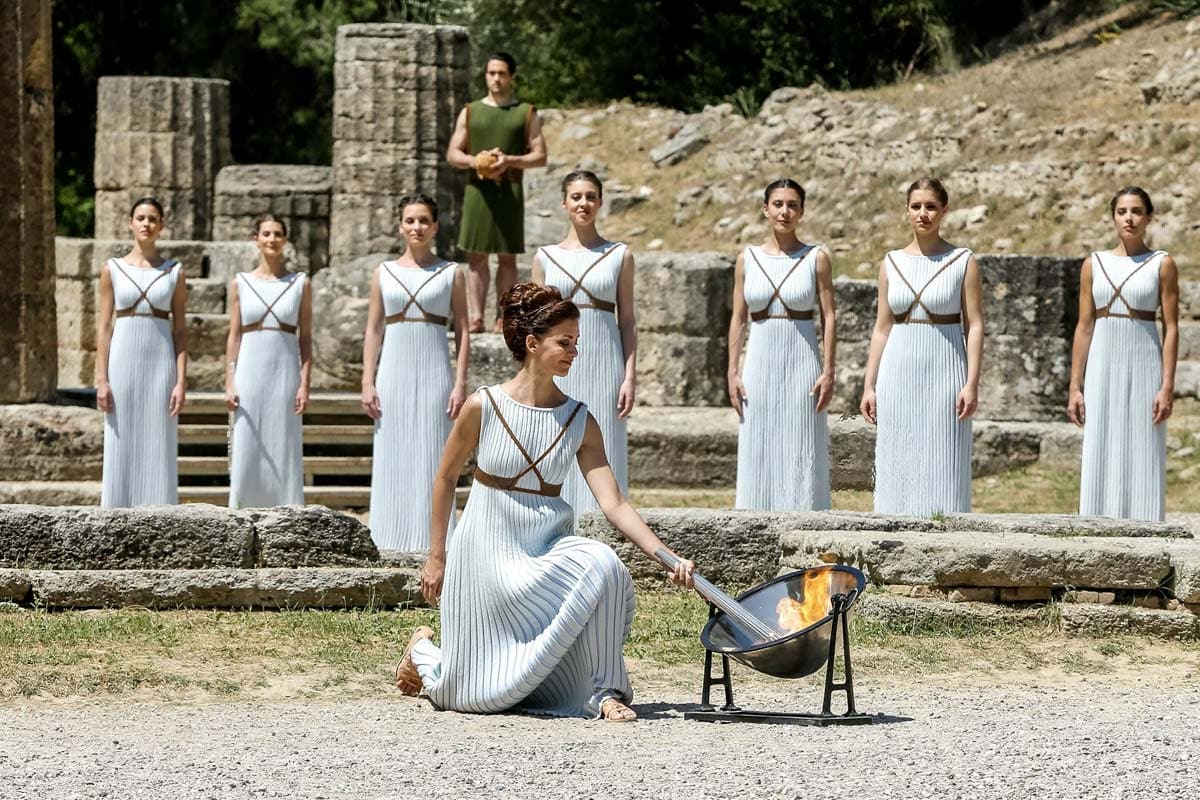
Since we’re talking about awesome Greek inventions that shaped the modern world, we can’t miss the Olympic Games. Originated in ancient Greece as many as 3,000 years ago, the Olympics were held every four years in Olympia (located in the western Peloponnese peninsula) in honor of the King of Gods – Zeus.
The first Olympic Games were held in 776 BC. At that time, there was only one event, a 192-meter footrace, which was won by a cook named Coroebus. The legend has it the games were founded by Hercules (son of Zeus) and a mortal woman named Alcmene.
The Olympics soon became the most popular sporting festival in ancient Greece and kept that title until the Roman emperor Theodosius I banned them in 393 AD. Fifteen centuries later (1896), the games were revived to become the global event they are today.
Romans copied the Greeks a lot!
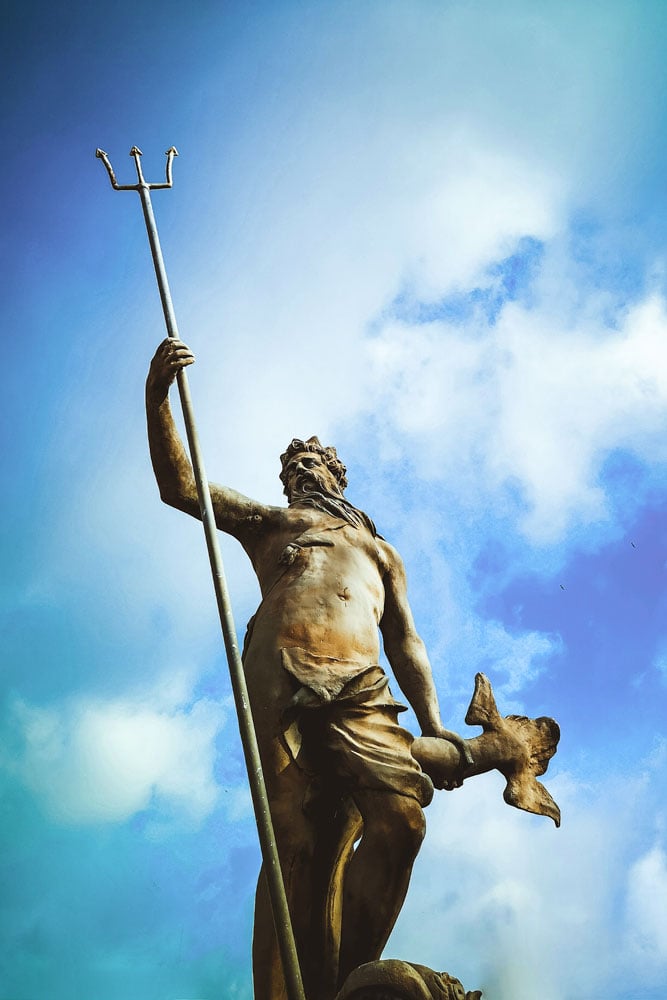
The Classical Antiquity period was dominated by two civilizations – Greeks and Romans. While ancient Greeks seemed to invent pretty much everything, the Roman Republic (and later Empire) just took their discoveries and renamed them.
The Greek pantheon of Gods and Goddesses is a great example. Romans took the 12 Olympians and renamed them while keeping most of their prominent features and powers. Poseidon became Neptune but still ruled the oceans, Zeus became Jupiter but still owned the skies, Ares was now Mars but still the fearful God of war, etc.
Romans also liked to copy Greek art, but instead of bronze, they made their sculptures out of marble. For the Romans, Greek art symbolized the desired way of life, a life of luxuries, leisure, and learning.
Alpha Beta Gama

No, the ancient Greeks didn’t invent the alphabet ( I was a bit surprised too, but it was the ancient Phoenicians); however, they perfected it so much that the modern Greeks still use it. I kid you not, the Greek alphabet, which was invented around 1000 BC, is the oldest written language to still be used in the present day.
The Greek alphabet is so old that even the word alphabet derives from it. It refers to its first two letters, alpha (α) and beta (β). For some reason, greek letters are also widely used in US college fraternities and sororities that are even known as Greek-letter organizations.
Sunny Greece
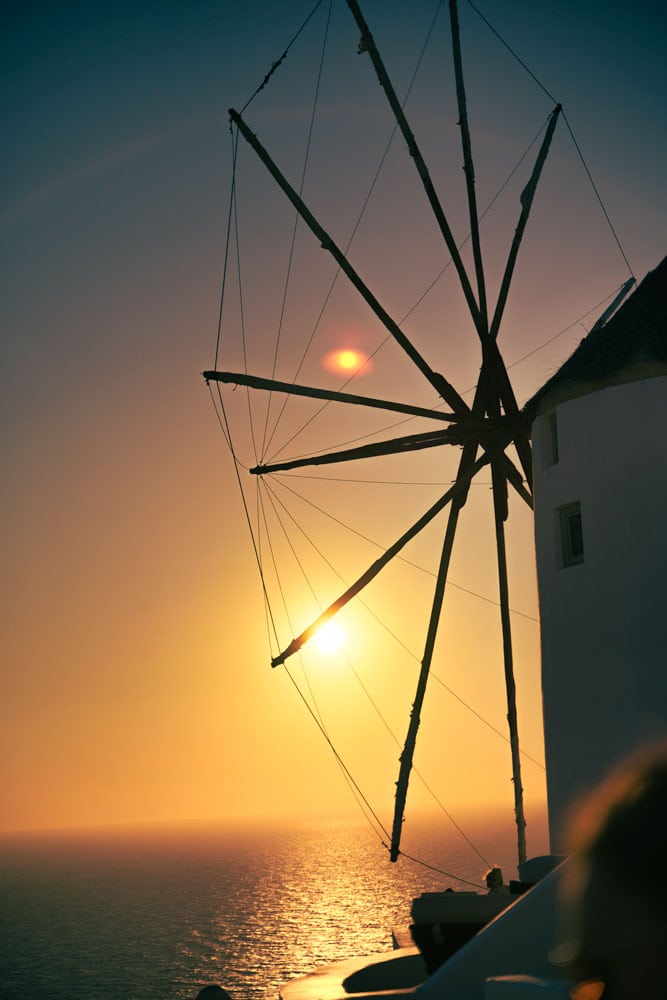
We continue our fun facts about Greece with something obvious – Greece is sunny!
Well, duh, everybody knows that.
That’s true, but does everybody know precisely how sunny Greece is? With an average of over 3,000 hours of sunshine per year, Greece, and specifically the island of Rhodes, is among the sunniest places on the continent.
The country is so sunny that on July 10, 1977, the temperature in Athens reached 48 °C (118.4 °F), setting a record for the hottest place in Europe ever.
See Also: 10 Curious Facts About Qatar
Santorini is a volcano?
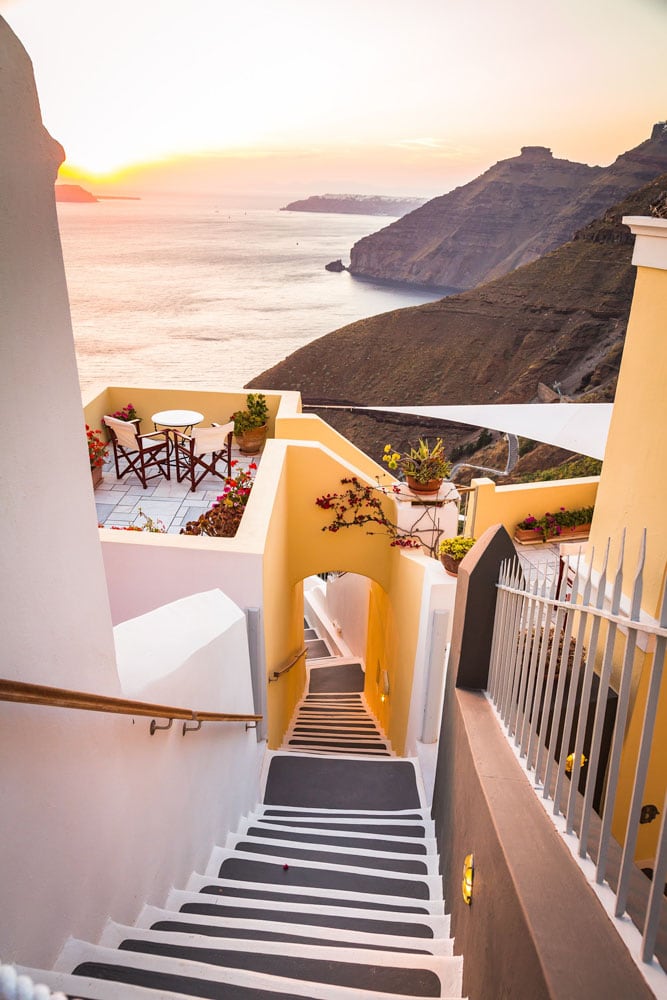
Santorini is one of the most fairytale islands in the world and a top attraction in Greece. Every year, millions of tourists flock to this world-renounced destination to see with their eyes the picturesque white houses, blue church domes, orange sunsets, and multicolored beaches.
Hardly any of these people know that the magical island is, in fact, an active volcano! Even though the Santorini caldera is dormant (the last eruption was in 1950), I’m sure some tourists won’t be charmed by the fact they are spending premium fees to sleep on top of hot lava.
For me, though, it’s one of the most astonishing facts about Greece.
White houses with colorful doors
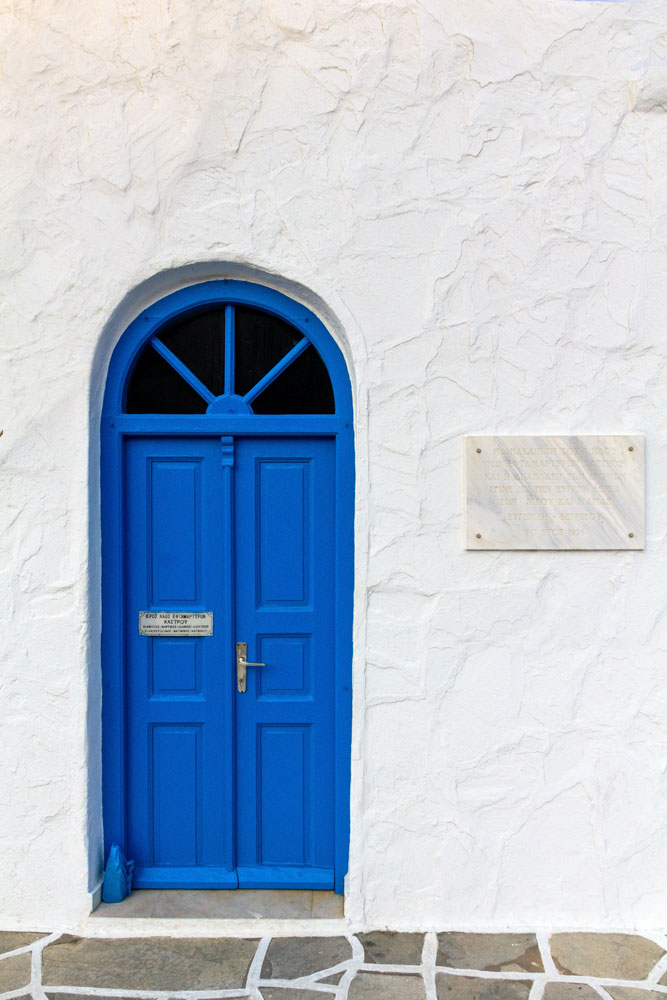
If you’ve been to Greece (or you love looking at photos from the country), you’ve already seen the signature white houses and their colorful doors.
This combination is not for aesthetic reasons only. The houses are mostly white because of the sunny weather all around the country. The white color reflects the biggest part of the dazzling sun, therefore, preventing the houses from getting too hot.
Ok, that makes sense. What about the colorful doors, though?
The color of the doors has nothing to do with practical reasons like the sun. Depending on where you’re in Greece, it’s either a superstition or tradition.
Around the Cyclade islands, the most popular door color is blue. It’s used on doors, windows, staircases, fences, pretty much everywhere. The idea is to create a protective blue belt against evil (that apparently hate blue).
On Mykonos, however, the colors have other meanings. Back in the day, the tradition was to paint your house according to your profession. Sailors had blue doors and windows, farmers green, while everyone else used red.
See Also: 20 Fun Facts About Spain
Fear of the evil eye

The previous greek fact mentioned special blue belts protecting the buildings from evil. Well, besides buildings, humans need protection too, right? To protect people from evil forces, Greeks like to wear a blue and white eye charm.
The tradition that goes back to the 6th century BC is supposed to protect you against the harmful energies of the evil eye (also known as mati) and is still pretty popular today.
Mediterranean diet

The world-famous Mediterranean diet is based on food found on the island of Crete. The menu on Greece’s biggest island is the perfect fit for humans. It includes fish, olive oil, plenty of vegetables, whole grains, red wine, nuts, and other yummy and healthy foods.
The Mediterranean diet is considered the reason why Greek men are among the tallest in the region. It’s also connected to the longevity of life in the country that even resulted in a Blue Zone. What’s a Blue Zone? Look bellow.
See Also: 20 Bizzare Facts About Portugal
There’s a Blue Zone in Greece

One of the most heartwarming facts about Greece is that it has a Blue Zone. Blue zones are few places on the planet where the average lifespan of the residents is extraordinary long.
Ikaria is one of the only five recognized blue zones on the planet. On average, the island residents live an impressive 8 to 10 years longer than Americans and are 2.5 times as likely to survive to 90. There’s even less chance for them to develop Alzheimer’s!
I don’t know for you, but I think I found my retirement dream island.
High heels are illegal

I’m sorry, ladies, since 2009, high heels are illegal in Greece. You don’t believe me, do you? Maybe I should’ve mentioned they are illegal only around the country’s ancient sites.
The reason for the ban was that thousands of high hells a day were found to be incredibly damaging to the ancient ruins. You can still wear them in restaurants and clubs though, so there’s no need to take them out of your suitcase.
Name days are as popular as birthdays

Everywhere in the world, people love to celebrate their birthdays. The Greeks, however, love to celebrate their name days as much as their birthdays, maybe even more!
The tradition has it that the house doors should remain open on name days, and a feast should be prepared for all guests. Speaking of guests, unlike birthdays, you don’t even have to invite them. Friends and relatives are supposed to just pop up for a bite (therefore, the open doors).
Gifts or pocket money are still expected, so the whole thing resembles something like an open-buffet birthday party.
Ancient Greece was not a single country
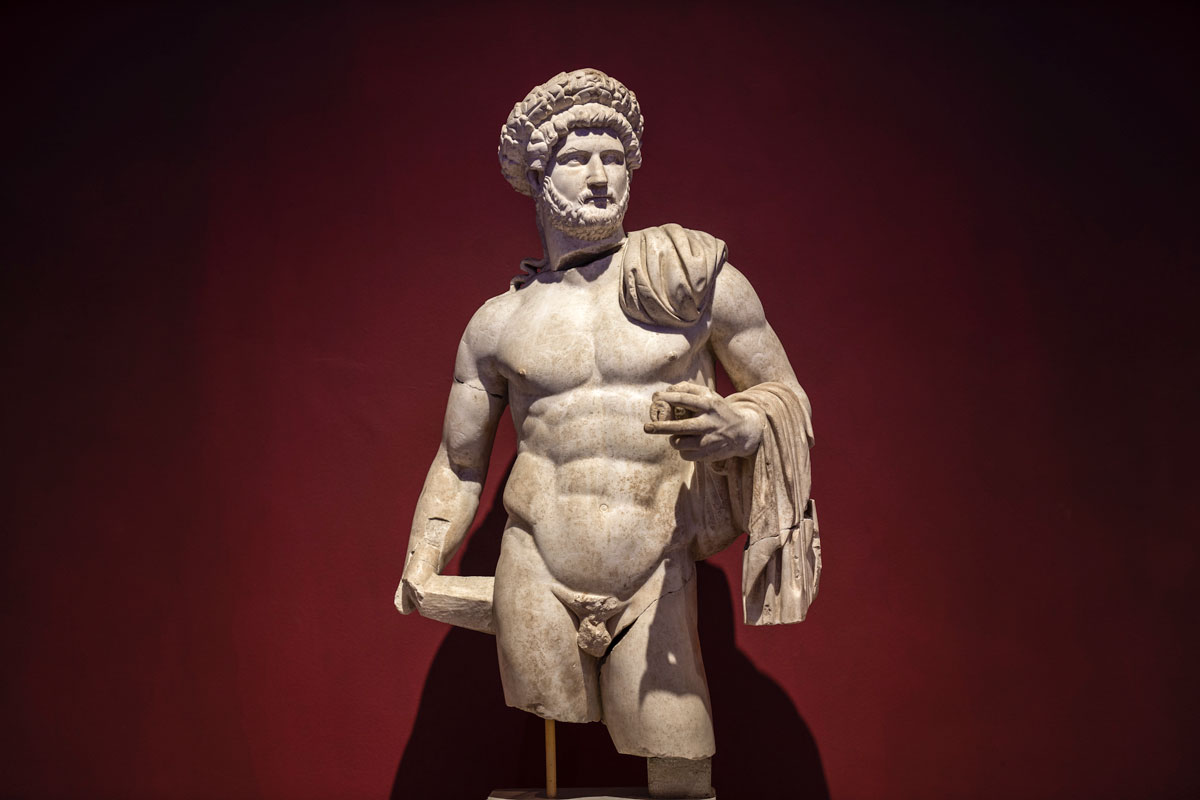
We cap our facts about Greece with another ancient curiosity. I kept saying how the ancient Greeks invented this and that, somewhat misleading you (sorry about that). The truth is the ancient Greeks were not a single country but over 1,000 city-states named poleis. They had different laws, government types, and regulations and often fought with each other.
The most famous poleis that encapsulated Greek ingenuity and became part of the modern myths and legends were Athína (Athens), Spárti (Sparta), Thíva (Thebes), Kórinthos (Corinth), Ródos (Rhodes), Égina (Aegina), and Siracusa (Syracuse).
That’s all from me, I hope you enjoyed my 20 fun facts about Greece.
————————————
If you haven’t planned your trip there yet, find out how I plan my trips!
————————————
I have 18 bucket list ideas for Greece. See my impossible bucket list of 1700+ adventures!
Have you been to Greece?
Some of the above are affiliate links and I will earn a percentage of the sale if you purchase through them at no extra cost to you. This helps keep my site running – so thanks in advance for your support!

